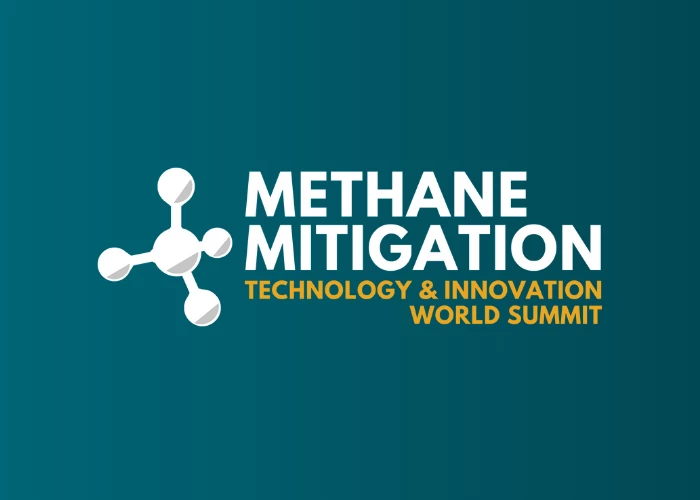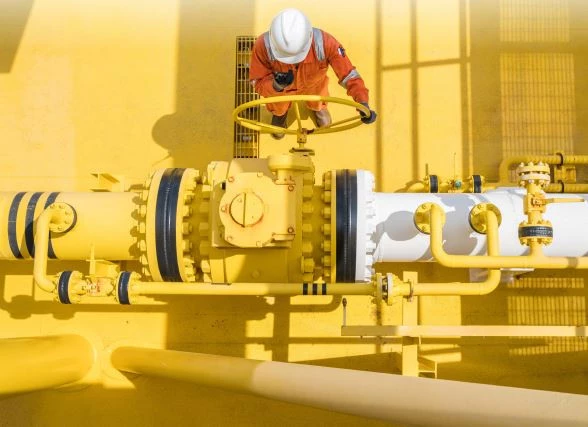Operational Excellence in the Goldilocks Zone
Interview with Sean Barnes, VP Corporate Office, Nine Energy Service
Add bookmark
Operational excellence requires a degree of stability to understand processes and identify ways to improve them.
But how do you improve processes and maintain the gains when the macroeconomic climate is constantly changing how you operate?
You’ve got to find the Goldilocks zone, according to Sean Barnes, VP, Corporate Operations, at Nine Energy Service. He says that the periods between booms and busts is the time you need to make small and rapid improvements and get them solidified before the next big market change.
In this interview, Barnes discusses the impact of market volatility on oil and gas operations, the ongoing labor challenges in the industry, and what it means to find the just right “goldilocks” zone for operational excellence in oil and gas companies.
Diana Davis, Oil and Gas IQ: The price of oil is going up and down a bit like a yo-yo these days. We were down in Covid. Up after the Russian invasion of Ukraine. And there are fears that a major recession is looming that will drive prices down again. What are the big challenges that such high price volatility poses to oil and gas operations?
Sean Barnes, Nine Energy Service: If you take a macro look at oil and commodity prices over numerous decades, there has always been a boom-and-bust cycle in oil and gas.
However, what we’re seeing now is a compression of those cycles. Historically we may have had a ten-to-fifteen-year cycle between a boom and a bust. Today those cycles are compressed into a three-to- four-year cycle.
This compression is creating a lot of new challenges and dynamics that oil and gas companies are not used to.
What we’re also seeing in North America is that when the bust occurs, the companies that are not well run and efficient are going out of business. In a way this is a good thing because it weeds out the poorly run companies that were only making money because oil prices were so high. This leaves the companies that are well managed from a financial and operational aspect.
The downside is that this churn and compression of cycles is creating challenging labor dynamics that we’re now having to contend with.
For instance, we’re starting to see the operators – the field hands – get tired of this cycle of being hired and then let go.
The emotional toll that this up and down cycle exacts on people means that some are hanging up their hat for good. Instead of coming back to work during the boom times, they’ve decided now to go drive trucks or work for Walmart because the employment is less volatile.
We also have a challenge with the younger generations because there's not as much interest in oil and gas as in the past because of how it's viewed in terms of climate change.
Diana Davis, Oil and Gas IQ. What do these challenges mean for operational excellence at oil and gas companies?
Sean Barnes, Nine Energy Service: In my experience, it is usually the big operators that have the resources and scale necessary to successfully implement operational excellence initiatives.
The smaller companies tend to struggle with operational excellence because they have an entrepreneurial spirit and mindset.
But as they grow – often through acquisitions and mergers – they get to a point where they need to start thinking more seriously about operational excellence. Similarly, there is a push from the operators to increase efficiencies, drive down costs, and increase performance.
The challenge for the small to mid size companies is finding the skills they need to embed that capability. I've seen some of our peers bring in a Six Sigma Master Black Belt who has years of experience at GE or Tyco Sigma but who doesn't fully understand oil and gas operations.
You get the best result when you find someone who understands the challenges of service and manufacturing and oil and gas along with an in depth understanding of the OpEx tools and processes. In my experience, that is a rare combination.
Operational excellence professionals who understand oil and gas operations could make a significant amount of impact at small-to-mid size companies in the industry.
Lean and Six Sigma are important tools, but I think that they don’t always fit perfectly into every organization. It makes sense to take principles from Lean and Six Sigma and figure out how they apply your organization to move the needle in a meaningful way.
There isn’t a one-size-fits-all. You need to have somebody who understands the different principles and how to map out and streamline processes.
Diana Davis, Oil and Gas IQ: You’ve spoken to us before about something that you call the Goldilocks zone for operational excellence. What is it and how do you capitalize on it?
Sean Barnes, Nine Energy Service: In the solar system, the Goldilocks zone is that sweet spot where liquid water exists on the surface; it’s that ideal location for life to occur.
As we discussed earlier, the oil and gas industry alternates between booms and busts. When I talk about the Goldilocks zone for operational excellence in oil and gas, it’s that spot between the boom and the bust.
In my experience, when the booms are occurring, the business is operating at such a frantic pace that it’s a race just to get the job done. You are working so hard and so fast that it is very unlikely you will be able to implement any sort of significant and meaningful change.
On the flip side, when the bottom falls out, you're just trying to keep the organization afloat. During the pandemic, for instance, we had to hibernate our corporation. We laid off 65% of the employee population, which is unfortunate and challenging.
When that happens there's not enough capital or funding or resources to do anything. You need to hunker down and wait out the cycle.
As things start to recover and the revenue pick back up, your margins start to increase. Before it turns into an all-out sprint, that is the ideal time to implement significant change in the organization.
That’s the time when you usually have access to more capital or funding for technology, systems or platforms and people to be able to implement these changes.
The key is to get the new processes solidified before the boom to prevent people from reverting back to their comfort zone. That happens a lot when things get chaotic and hectic. People revert to what they know, which may not always be the most efficient process.
So, during that sweet spot, you've got to get in, get those processes changed as quickly as possible, and cement them into how the business operates.
Diana Davis, Oil and Gas IQ: Given the compression of the boom-and-bust cycle, it sounds like you really need to focus on making smaller focused changes rather than tackling too much at once?
Sean Barnes, Nine Energy Service: Absolutely. The other thing to consider is that one of the prerequisites for success is that any team that is trying to affect change must have a strong brand so that people are willing to work with them.
The people who are trying to drive change and improve processes must be trusted individuals, whether that’s your operational excellence team or your IT team.
You build your brand and trust with the business by successfully implementing smaller changes.
This is where we get into a flywheel effect. When you get a win under your belt, you get a little bit more momentum. Then you go for another win.
But if you try to come out of the gate swinging with a new ERP system, and you don't even have everybody on the same e-mail platform or your wireless network isn’t standard across your districts, it's not going to work. You’ll quickly lose credibility if that gap between your aspirations and reality is too big.
You’ve got to get small wins and build up momentum over time. You can affect significant amounts of change by following that process.
Where I think a lot of business leaders get into trouble is that they want something significant done in a very short period and it just it doesn't work. It blows up in their face and that's where you see these failed implementations.
Diana Davis, Oil and Gas IQ: Where do you think we are right now in the operational excellence zone?
Sean Barnes, Nine Energy Service: We're getting close to a chaotic beehive right now. The sweet spot probably would have been over the past 12 months.
Diana Davis, Oil and Gas IQ: The prominent tools for operational excellence - Lean and Six Sigma – were 20th century constructs. As we move forward this century what will be the new tools? Will digital tools like AI, robotics, and automation, be part of the next wave of operational excellence for oil and gas?
Sean Barnes, Nine Energy Service: I would say that these digital tools will be part of the next wave.
But I also have this feeling that AI and machine learning and others are buzzwords that are being thrown around without people truly understanding what they mean or how they can benefit their organization.
I think we’re still a few years away from realizing the potential of these digital tools.
Big operators may have teams of data scientists that can work with operations and help them understand all the data that they're collecting. But very few organizations have the scale necessary to support that and I think most organizations are collecting operational data, but they don't quite know what to do with it. They certainly definitely don't know how to layer AI or ML across the top of it to really see any sort of ROI on it yet.
We have also started capturing mountains of data within each of our business units that we operate in. We're starting to structure the data in a way where we can overlay some AI and ML across the top of it to start seeing benefits and value from it.
We’ve utilized Lean and Six Sigma to optimize many of our manual processes over the past few years.
As we've been collecting our operational data for field ticketing and scheduling and dispatch and maintenance, for instance, we’ve been able to start looking at different districts that have slight variations in their processes.
We’ve been able to look at the performance metrics of certain crews and understand which crew is operating more efficiently? Then we can start making more informed decisions on standardizing processes using hard data that we have collected in our systems.
But everybody knows the importance of data. It’s just that we’re in this infancy stage where we're trying to understand these buzzwords, what they mean and how they apply to my business so that I gain valuable insights to help improve processes.
Interested in Learning More About this Topic?
Sean Barnes will be speaking at the Operational Excellence in Oil & Gas Summit - the most inspiring showcase of oil and gas industry innovation in North America. Now in its 13th year, the summit brings together over 300 senior level executives to share use cases and showcase trailblazing technologies that will transform your operations. Join us November 1-3 in Houston. Download the agenda for more information.


























